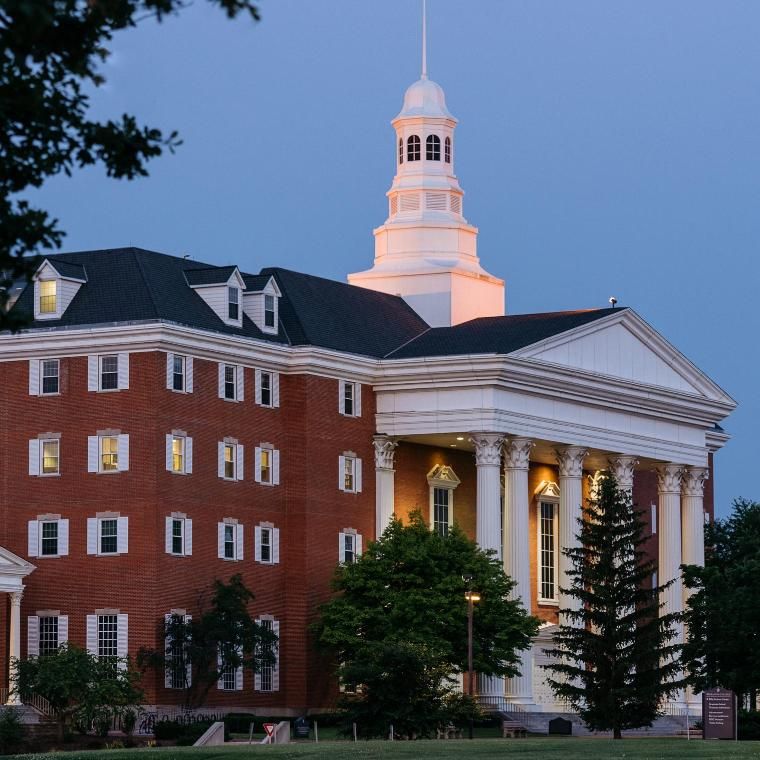Course Descriptions
Terms
MISS: Missional Church Movements
EVAN: Evangelism
INTR: Intercultural Studies
BITH: Bible and Theology
MISS 562 - Launching Apostolic Movements. Focuses on developing an overview of what constitutes a missional movement by gaining a working understanding and analysis of the key elements that have often coalesced in order to catalyze missional movements in Western and majority world contexts, both historically and in more contemporary times. (4 credit hours)
MISS 564 - Planting and Growing Reproducing Churches. Investigates models, principles, strategies, and methodologies for planting new churches in North America that have an apostolic ethos of continual reproduction. Surveys Biblical materials on church planting, examines the recent literature and resources, and explores networks of church planting organizations and churches. (2 credit hours)
MISS 565 - Incarnational Ministry for Missional Churches. Explicates the basic components of missional communities, including communion, community and mission, that emphasize entering into communities and cultures and sectors of society, rather than drawing people out of their communities, contexts, and roles into siloed religious communities. (2 credit hours)
MISS 568 - Organic and Simple Church. Explores the dynamics of cell, simple, organic, and house church movements both here in North America and in other parts of the world. Special attention will be paid to multiplication factors, contextual influences, resourcing issues, organizational centralization and decentralization forces, and leadership patterns. (2 credit hours)
MISS 575 - Urban Missional Movements. Examines creative urban missional reproducing movements, paying special attention to the unique opportunities, challenges, and contexts of larger urban communities. Students will gain a knowledge of urban contexts, and explore ways the church can interact with those contexts in missional engagement. (2 credit hours)
MISS 576 - Missional Movements and Evangelism. Explores a research based understanding of various missional expressions and movements, learning to assess strengths and weaknesses of the various movements and expressions, and examining effective and ineffective evangelism dynamics. (2 credit hours)
EVAN 526 - Gospel: Theological Perspectives on Evangelism and Renewal. Examines the gospel as good news of God's inaugurated kingdom, with a focus on the centrality of Jesus' death and resurrection as interpretive center. Investigates the dynamic of the spread of this good news throughout Scripture and history. Explores more recent movements of renewal and revival in relation to issues of evangelism and social transformation. (4 credit hours)
EVAN 542 - Church: Movements and Models. Explores different paradigms and models of church, paying special attention to the most recent emerging missional movements and their characteristics, impact and trajectory. Includes field trip visits and guest lecturers representing various existing models of churches and ministries. Assesses ministries using a number of different evaluative tools that are widely used. (4 credit hours)
EVAN 545 - Culture: Emerging and Global. Explores the shape of ministry and evangelism in postmodern, post-Christendom and globalizing cultures. Examines popular culture in the U.S. as a key context for ministry and a critical influence around the world. Reframes evangelism, apologetics, preaching, healing, and discipleship in relation to the significant cultural shifts that are occurring. (4 credit hours)
EVAN 548 - Evangelism and the Local Church. Explores the theology, strategies, practice, and leadership styles associated with implementing evangelism through a variety of ecclesiological traditions and local church settings. (4 credit hours)
EVAN 559 - Organizational and Change Leadership. Explores models and principles of change leadership, leading organizations, building teams, handling conflict, and fostering entrepreneurial environments. Examines the leadership literature on these issues. Utilizes case studies and group experiences. (4 credit hours)
EVAN 692 - Arrow Capstone Seminar (also known as EVAN 694- Evangelism and the Local Church. Explores the theology, strategies, practice, and leadership styles associated with implementing evangelism through a variety of ecclesiological traditions and local church settings. (2 credit hours)
EVAN 694 - C.S. Lewis: Apologist of the Head and Heart. Surveys the first rate Christian literary scholar's pilgrimage to faith exploring the matters of the heart that lead him toward Christ as well as the intellectual barriers to faith he needed to resolve before he fully committed. C.S. Lewis was arguably one of the greatest integrators of faith and learning of the last century. The course will sample a wide range of readings from the eleven literary genres in which Lewis wrote in order to glean insights for evangelism from each. At the end of the course the student should be very familiar with Lewis’s writing, central ideas, effective approach, and persuasive ability to appeal to issues of the head and heart in nurturing another toward Christ. (2 credit hours)
EVAN 696-Internship. The purpose of the internship is to provide the graduate student significant “hands-on” experience. View more information about the internship packet.
INTR 561 - Intercultural Communication. Foundational principles of intercultural communication from the fields of social psychology, cultural anthropology, and communication theory integrated with selected areas of personal encounter in cross-cultural settings. (2 credit hours)
MISS 692 - Comprehensive Exam. Prerequisite: Submission of Candidacy form. Fee: $120. Graded pass/fail. (0 credit hours)
BITH 565, 566, or 576: Students have three options for fulfilling their Biblical and Theological Studies Requirement:
- BITH 565 Christian Theology
- BITH 566 Biblical Interpretation
- BITH 576 History of Christianity to 1900
- BITH 564 Principles of Biblical Interpretation is also an option for those with a background in NT Greek. Each class is four credits, and normally two of the courses are offered every semester. There is also the option of taking the BITH course in an intensive format during the summer and January.
